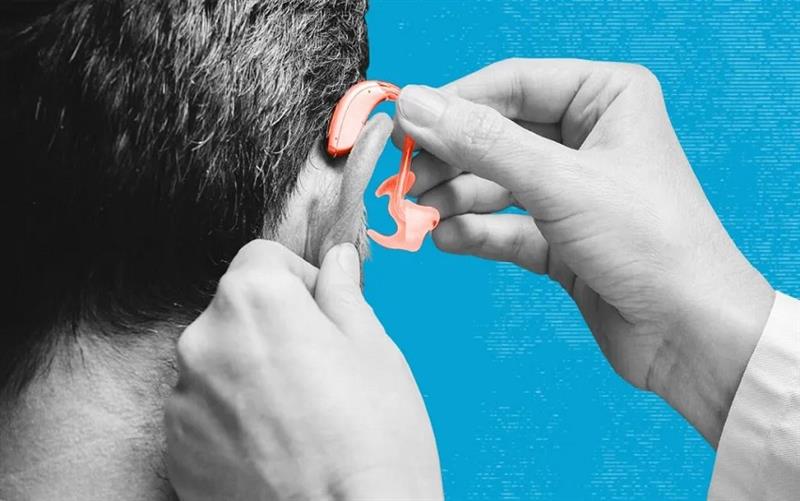
The most crucial thing you can do to ensure uninterrupted use of your hearing aids is to safeguard them from dampness. Body-worn electronic devices are hearing aids. Because of the advanced circuit boards and microelectronics they contain, they are especially vulnerable to the corrosive effects of dampness and perspiration.
The ability of hearing aid manufacturers to waterproof their equipment has greatly improved throughout time. Some hearing aids have even received certification for usage in shallow water thanks to the development of rubber seals and nano-coating. Despite these advancements, moisture still poses a significant threat to hearing aids. By understanding the fundamentals of proper maintenance, particularly how to keep them dry, you can prevent any downtime caused by moisture damage.
Because high-tech circuit boards and microelectronics are used to make hearing aids, heat, moisture, and dust have the potential to harm them. Heat and moisture, particularly in the summer, put them at danger of having a shorter battery life, poorer sound quality, or malfunctioning.
The majority of hearing aids contain rubber seals and a water-resistant nano-coating to help keep out some moisture, but they are not totally waterproof. To ensure that your hearing aid has the best possible performance and durability, you must shield it from heat and moisture. It is advised that you take your hearing aids out before getting in the shower, swimming, or sauna.
What Kind of Setting Is Best for Hearing Aids?
Although hearing aids may adapt to a variety of situations, there is a general temperature range where they perform at their best:
- Cooler environments :Hearing aids like cooler environments with temperatures between 65 and 75 degrees Fahrenheit. However, they may have shorter battery lives if the temperature is too low.
- Warmer conditions : Hearing aids can function normally in areas with temperatures between 75 and 90 degrees Fahrenheit.
- Harsh temperatures : Exposure to harsh temperatures impairs the performance of hearing aids. They work best when kept out of extremely hot or cold or humid environments.
- Humidity : While hearing aids can handle mild humidity, extreme humidity has a negative impact on their performance.
The following advice will help you keep your hearing aids safe from heat and moisture:
1. Frequently clean your hearing aids
To keep your hearing aids dry, wax, and debris-free, clean them every day. To remove oils, sweat, and wax, clean your hearing aids with a soft, dry cloth at the very least. When you have finished using them for the day or at night, this is best done.
Open the battery door on your hearing aids' disposable battery compartment to let it completely dry out. By doing this, you'll reduce the likelihood that the battery connections and other electronic parts of your gadget will corrode.
2. Dehumidifier
You might want to think about buying a dehumidifier if you live somewhere that is really humid. Your home's humidity can be decreased with the use of a dehumidifier. It is crucial that you regulate the humidity levels in your home since hearing aids might suffer damage if they are exposed to high amounts of humidity.
To keep your devices dry when not in use, you might purchase a hearing aid dehumidifier. These specifically made dehumidifiers extract extra moisture from the hearing aids and shield them from corrosion and water damage using a desiccant. After cleaning your hearing aids, just put them inside the dehumidifier and close the lid.
3. A heater and fan
To keep your hearing aids dry, you might purchase a heating and cooling system. The hearing aid is dried with this technique using heated air. A UV light can sanitise the hearing aid and keep it free of microorganisms in some heat and fan systems. This is especially advised for those who frequently get ear infections or have discharge from their ears.
4. Protection for hearing aids
The electrical parts of hearing aids might be harmed by dampness because they are not waterproof. You can purchase or build hearing aid covers to shield your devices from dust, filth, and moisture to reduce the risk of water damage.
5. Guard Your Hearing Aids From Sunlight
Your hearing aids can contain electronics and plastic parts that are heat-sensitive. The components should not be exposed to heat for an extended period of time. When not in use, hearing aids should be kept in a location with little temperature variation.
6. Have your hearing aids cleaned by a professional
Every six months or as directed by a local audiologist, hearing aids should be cleaned by a specialist. Your hearing aids will be examined by your audiologist, who will also clean them with special equipment. Additionally, they will assess how well your hearing aids are working and, if necessary, make modifications.
It's ideal to keep yourself as educated with your hearing aids and a new breakthrough in the technology. Ask your query via Book an Appointment today. For more information visit https://hearing.careinc.ca or you can call us today at (403)605-6300